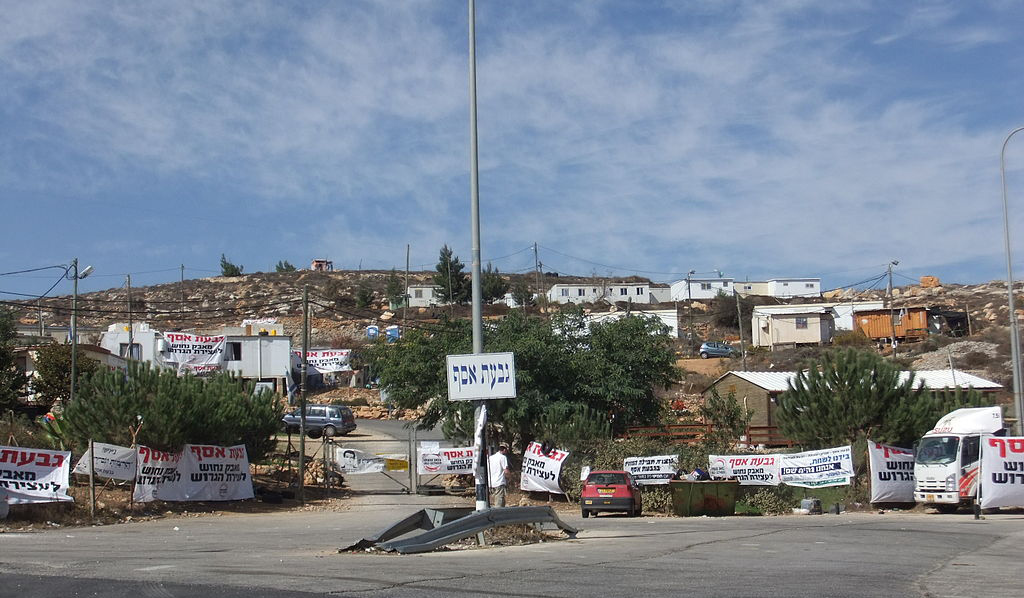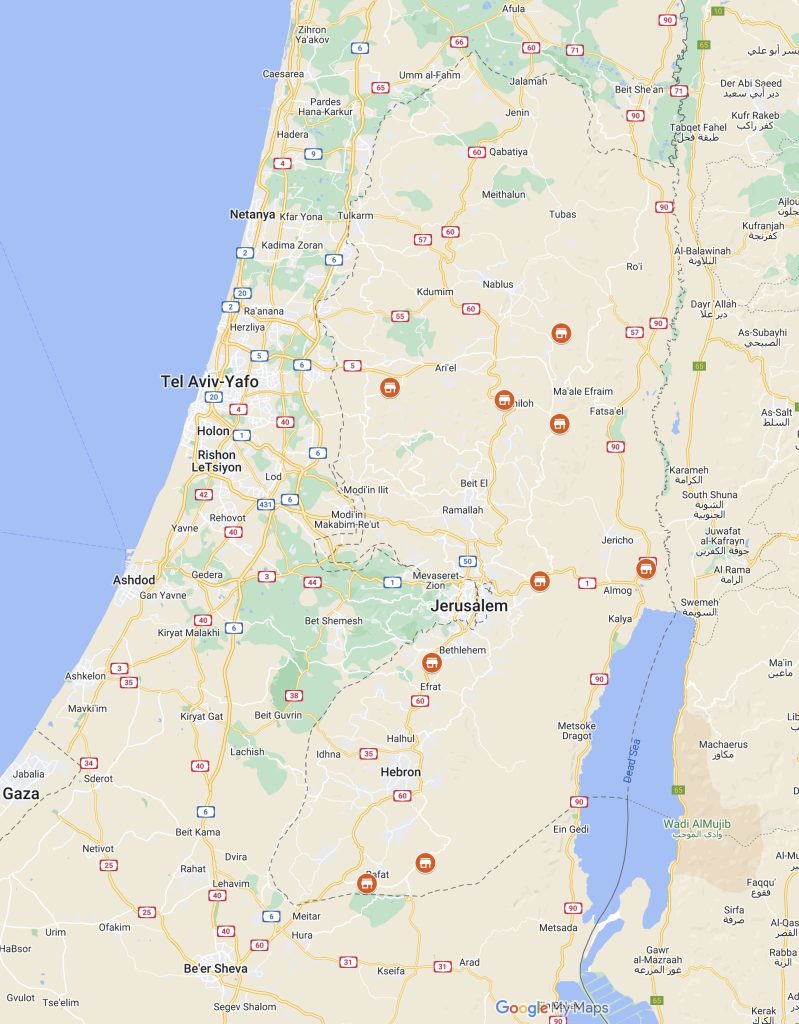Australia/Israel Review
Understanding Israel’s settlement announcements
Feb 27, 2023 | Chaim Lax

The Israeli cabinet voted in favour of the legalisation of ten West Bank outposts on Feb. 13, as well as the advancing of plans for 10,000 new homes in already-existing West Bank Jewish communities.
Coverage in international media outlets, including the BBC, AP, The Guardian, and Reuters, failed to provide proper context and vital information necessary to fully understand the Israeli Government’s decision.
The Ten Outposts: A Guide
In the West Bank, a Jewish community that has been established without the recognition or permission of the Israeli government is referred to as an “outpost”.
Outposts sprang up in the early 1990s after Israel, as part of the Oslo peace process, froze the construction of new Jewish communities in the West Bank, leading to ideologically driven settlers taking unilateral measures to build in the region.
Outposts can range in size from a few families to hundreds of people. Most are composed of caravan homes (that may not be connected to basic Israeli services like electricity and water), while some feature more advanced dwellings.
Because they were built without the permission of the Israeli government, all outposts are threatened with evacuation and destruction by the Israeli authorities.
The vote to legalise ten outposts now begins the process of granting them official recognition by the state. This will protect them from destruction, connect them to basic Israeli infrastructure, and allow their residents to build permanent homes.
With more than 100 outposts dotting the West Bank, these specific outposts seem to have been chosen for legalisation because the majority are located near established settlements and many were previously slated for legalisation.
The ten outposts are:
- Avigayil: Founded in 2001, Avigayil is located near the Jewish community of Maon in the south Hebron Hills. With a current population of approximately 40 families, Avigayil was slated for government recognition as early as 2020.
- Givat Harel and Givat Haroeh: Founded in the late 1990s/early 2000s, both of these outposts are located in the Binyamin region to the north of Jerusalem. Due to their small populations, Givat Harel (approximately 60 families) and Givat Haroeh (approximately 22 families) are slated to be merged into one recognised community. According to reports, both outposts were slated for government recognition as early as 2020.
- Givat Arnon: Founded at the turn of the century, Givat Arnon is located outside the community of Itamar in the Samaria region. With fewer than ten families, Givat Arnon was slated to become a recognised community as early as 2020.
- Sde Boaz: Founded in 2002, Sde Boaz is located in the Gush Etzion settlement bloc. With approximately 50 families, Sde Boaz was reportedly slated to be recognised by the government as early as 2020.
- Ashael: Founded in 2001, Ashael is located in the south Hebron Hills, around a government-recognised water tower. With a population of approximately 60 families, Ashael was slated for government recognition as early as 2020.
- Beit Hogla (Roeh Nevo): Founded in 1993 as a farm, Beit Hogla is located on the road to Jericho in the Jordan Valley. In 2016, the community of Roeh Nevo sprung up alongside it. There are approximately 35 families in the community.
- Malachei Hashalom: Founded in 1998, the Malachei Hashalom farm has hosted residents since 2016. Located next to the Jewish community of Kochav Hashachar, Malachei Hashalom is home to a number of families.
- Shaharit: Founded in 2011, Shaharit is a farm community located in the Samaria region. It was reportedly slated for government recognition as early as 2018.
- Mitzpe Yehuda: Founded in 2019, Mitzpe Yehuda is a farm community located next to the community of Kedar, between Gush Etzion and Maaleh Adumim (outside of Jerusalem).

The ten West Bank outposts the Israeli cabinet has voted to legalise (Image: Google Maps)
Contrary to what has been portrayed in the media, the Israeli cabinet decision does not mean that these outposts will immediately become recognised legal communities in the West Bank.
The Government now has to prove to the Supreme Court that these outposts were built on public state land.
Since a number of these outposts are alleged to have been built fully or partly on private land, it can be a lengthy period of time (possibly a number of years) until the legal process for recognition is concluded.
The Israeli Government also chose to approve the construction of 10,000 new homes for established Jewish communities in the West Bank.
However, just like the legalisation of the outposts, the international media omitted vital context and relevant information.
Despite the suggestions in some media, the Israeli Government’s approval of construction does not mean that there will be shovels in the ground any time soon.
The next step is for the Higher Planning Committee of the Civil Administration to meet and approve these plans. The Higher Planning Committee, which has not met for nine months, is notorious for delays due to understaffing and bureaucratic complexities.
Once the construction plans have been through the Higher Planning Committee, there are further steps in the approvals process before they can be certified and actualised.
Even if there is no opposition to the building plans (which warrants extra steps), there are still approximately five steps between the approval of the Higher Planning Committee and the final authorisation for these homes.
Then, once these homes receive their final authorisation, it may be a number of years before they are finally built and families can move into them.
Several major media outlets parroted the claim that the approval of these homes will seriously impact any future peace negotiations between the Israeli government and the Palestinian Authority.
However, it should be noted that most Jewish communities in the West Bank are located in so-called “consensus settlement blocs” that numerous Israeli governments have maintained will remain under Israeli control in any future peace deal.
The majority of these blocs are located close to the Green Line, and can be easily incorporated into the permanent borders of the Jewish state, while not infringing on the contiguity of a future Palestinian state.
As the communities in these blocs are the fastest-growing Jewish communities in the West Bank, it can be understood that the vast majority of these 10,000 homes will be built in these consensus settlements.
While the outcry and the hyperbole of news reports concerning the Israeli cabinet’s decision may have given the impression that the two steps – legalisation and construction – will come into effect immediately, it is important to understand that the Government’s announcement is but the beginning of a possibly years-long process that includes the participation of a number of legal bodies that are tasked with oversight and compliance with regulations.
Chaim Lax is a contributor to HonestReporting, a Jerusalem-based media watchdog with a focus on antisemitism and anti-Israel bias, where a version of this article first appeared. © The Algemeiner (www.algemeiner.com), reprinted by permission, all rights reserved.
Tags: Israel, West Bank, settlements






